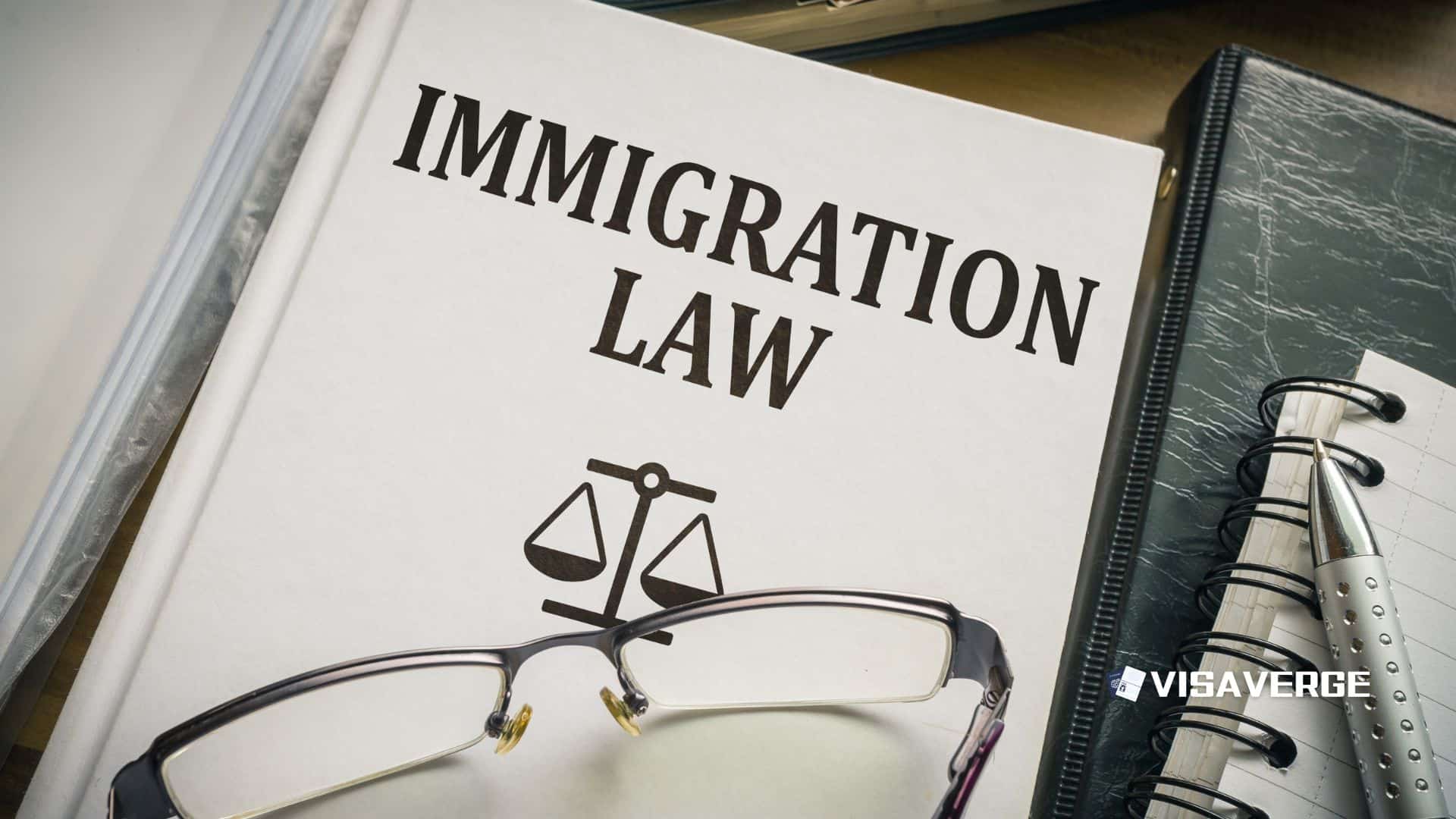Key Takeaways
• In 2025, President Trump declared a national emergency for southern border security and deployed 6,700 troops.
• Iowa Attorney General Brenna Bird leads multi-state support for ending birthright citizenship and enforcing immigration policies.
• Unauthorized border crossings dropped 95% in March 2025 compared to March 2024 due to new enforcement measures.
Executive Summary
In 2025, the United States 🇺🇸 has seen a dramatic shift in immigration enforcement and border security, largely driven by President Donald Trump’s return to office and the strong support of state officials like Iowa Attorney General Brenna Bird. Bird has played a leading role in defending and promoting Trump’s policies, particularly those aimed at reducing illegal immigration. This policy brief examines the background and context of these developments, analyzes the impact of recent executive actions, explores the legal and political responses, and provides evidence-based recommendations for policymakers. The brief draws on official government data, legal filings, and public statements to offer a comprehensive overview of the current landscape and its implications for immigrants, law enforcement, and the broader public.

Introduction
Illegal immigration remains a central issue in American politics, shaping debates over national security, economic policy, and the rule of law. In 2025, President Donald Trump’s administration has implemented a series of aggressive measures to address unauthorized border crossings, including military deployments, the construction of new border barriers, and the reinstatement of strict asylum protocols. Iowa Attorney General Brenna Bird has emerged as a prominent advocate for these policies, leading multi-state legal efforts and taking action against local officials who resist federal immigration enforcement.
This policy brief provides an in-depth analysis of the Trump administration’s recent actions, the role of state officials like Bird, and the resulting changes in border security and immigration enforcement. It also considers the legal challenges and political debates surrounding these policies, offering practical recommendations for stakeholders at all levels.
Background
Trump Administration’s 2025 Immigration Actions
Since taking office in January 2025, President Trump has prioritized border security and the reduction of illegal immigration. Key actions include:
- National Emergency Declaration: On January 20, 2025, Trump issued Proclamation 10886, declaring a national emergency at the southern border. He described unauthorized migration as an “invasion” that required extraordinary federal intervention.
White House Proclamation 10886 - Military Deployment: Executive Order 14167 authorized the deployment of U.S. military forces to support border enforcement. By March 2025, approximately 6,700 active-duty troops and 2,500 National Guard members were stationed at the southern border.
– Border Wall Construction: Executive Order 14165 directed the Department of Homeland Security (DHS) and Department of Defense (DOD) to build new physical barriers. In March, Customs and Border Protection (CBP) awarded a $70 million contract for seven miles of new wall in Hidalgo County, Texas. - Reinstatement of “Remain in Mexico”: The Migrant Protection Protocols (MPP), commonly known as “Remain in Mexico,” were reinstated, requiring asylum seekers to wait in Mexico while their U.S. cases are processed.
Brenna Bird’s Leadership and Advocacy
Brenna Bird, serving as Iowa’s Attorney General, has been a leading voice in support of Trump’s immigration agenda. Her actions include:
- Defending Executive Orders: On March 28, 2025, Bird led a coalition of 20 states in defending Trump’s executive order to end birthright citizenship for children born to undocumented immigrants and “birth tourists.” She argued that the policy would close loopholes and reduce incentives for illegal immigration.
- Legal Action Against Local Officials: Bird filed a lawsuit against Winneshiek County Sheriff Dan Marx, alleging that his refusal to honor federal immigration detainers violated state law. She demanded that the sheriff issue a statement affirming full cooperation with federal authorities, threatening the county with loss of state funding if it did not comply.
Republican Attorneys General Support
On January 8, 2025, Republican attorneys general from across the country issued a joint statement supporting Trump’s immigration policies. They praised the administration’s efforts to restore the rule of law, secure the border, and reverse what they described as the “disastrous” policies of the previous administration.
Analysis
Impact of Trump’s Policies on Border Crossings
The Trump administration’s actions have led to a significant decrease in unauthorized border crossings:
- March 2025: CBP reported 7,181 people crossing the southwest border between ports of entry, a 14% drop from February 2025 and a 95% decrease compared to March 2024, when apprehensions exceeded 137,000.
- May 2025: The number of encounters further decreased to 11,017, the lowest monthly total in three years.
- Average Daily Apprehensions: Dropped to just 264 in March 2025.
According to analysis by VisaVerge.com, these numbers reflect the most substantial decline in illegal immigration in recent history, largely attributed to the combination of military presence, physical barriers, and stricter asylum protocols.
Legal and Political Responses
Multi-State Legal Support
Brenna Bird’s coalition of 20 states defending the executive order on birthright citizenship demonstrates the strong alignment among Republican-led states in support of Trump’s agenda. The legal brief argues that ending birthright citizenship for children of undocumented immigrants and birth tourists will deter illegal immigration and reduce public costs.
Lawsuit Against Local Officials
Bird’s lawsuit against Sheriff Dan Marx highlights the tension between state and local authorities over immigration enforcement. By threatening to withhold state funding, Bird is using legal and financial pressure to ensure compliance with federal immigration policies.
National Republican Support
The joint statement from Republican attorneys general underscores the broad political backing for Trump’s approach. Their support focuses on:
- Reinstating the “Remain in Mexico” policy
- Completing the border wall
- Ending the abuse of immigration parole
- Issuing executive orders to limit federal agencies’ immigration-related actions
Effects on Stakeholders
Immigrants and Asylum Seekers
- Increased Barriers: Asylum seekers now face longer waits in Mexico, often in difficult conditions, while their cases are processed.
- Reduced Opportunities: The end of birthright citizenship for certain children and stricter enforcement measures limit pathways to legal status.
- Heightened Enforcement: Immigrants living in the U.S. without legal status face increased risk of detention and removal.
State and Local Governments
- Compliance Pressure: Local officials are under greater pressure to cooperate with federal authorities, with the threat of legal action and loss of funding for non-compliance.
- Resource Allocation: States supporting Trump’s policies may need to allocate additional resources to legal defense and enforcement activities.
Employers and Communities
- Labor Market Impact: Reduced immigration may affect industries that rely on immigrant labor, such as agriculture, construction, and hospitality.
- Community Relations: Tensions may rise between law enforcement and immigrant communities, potentially affecting public safety and trust.
Policy Options
Option 1: Maintain Current Enforcement Approach
Continue the current strategy of military deployment, border wall construction, and strict asylum protocols. This approach has resulted in a significant reduction in illegal immigration but may face ongoing legal and humanitarian challenges.
Pros:
– Sustained low levels of unauthorized border crossings
– Strong deterrent effect
– Political support among Republican-led states
Cons:
– Legal challenges over constitutionality (e.g., birthright citizenship)
– Humanitarian concerns for asylum seekers
– Strained relations with local officials and immigrant communities
Option 2: Increase Support for Local Law Enforcement
Provide additional resources and training to local law enforcement agencies to ensure compliance with federal immigration policies. This could include grants, technical assistance, and legal guidance.
Pros:
– Improved coordination between state, local, and federal authorities
– Reduced risk of legal disputes
– Enhanced enforcement capacity
Cons:
– Potential backlash from local communities
– Increased costs for state and local governments
Option 3: Reevaluate Humanitarian and Legal Impacts
Establish a task force to review the humanitarian and legal impacts of current policies, particularly on asylum seekers and children affected by changes to birthright citizenship.
Pros:
– Identifies unintended consequences and areas for improvement
– Balances enforcement with humanitarian considerations
– Informs future policy adjustments
Cons:
– May slow down enforcement efforts
– Could face political resistance from hardline supporters
Recommendations
Based on the analysis above, the following evidence-based recommendations are offered for policymakers:
1. Continue Targeted Enforcement While Ensuring Legal Compliance
Maintain effective border security measures, including military support and physical barriers, but ensure all actions comply with constitutional and statutory requirements. Regular legal reviews should be conducted to minimize the risk of successful court challenges, especially regarding birthright citizenship.
2. Strengthen State-Local-Federal Coordination
Develop clear protocols for cooperation between state, local, and federal agencies. Provide training and resources to local law enforcement to help them understand their legal obligations and the importance of compliance with federal detainer requests. Consider incentives for localities that demonstrate effective collaboration.
3. Monitor Humanitarian Outcomes
Establish a monitoring system to track the conditions of asylum seekers affected by the “Remain in Mexico” policy and children impacted by changes to birthright citizenship. Use this data to inform policy adjustments and ensure that enforcement does not result in unnecessary harm.
4. Engage Stakeholders in Policy Development
Include representatives from immigrant communities, employers, and local governments in the policy development process. Their input can help identify practical challenges and opportunities for improvement, leading to more effective and sustainable solutions.
5. Provide Transparent Public Communication
Regularly publish data on border crossings, enforcement actions, and the outcomes of legal challenges. Transparency builds public trust and allows for informed debate about the effectiveness and fairness of immigration policies.
Practical Guidance for Stakeholders
- Immigrants and Families: Stay informed about changes in immigration law and policy. Consult with qualified immigration attorneys for advice on legal status and available options. The U.S. Citizenship and Immigration Services (USCIS) website provides official forms and guidance.
- Employers: Review hiring practices to ensure compliance with employment eligibility verification requirements. The E-Verify system can help confirm work authorization.
- Local Officials: Seek legal guidance on obligations under state and federal law. Engage with state agencies to access training and resources for effective cooperation with federal authorities.
Conclusion
The Trump administration’s 2025 immigration policies, strongly supported by Iowa Attorney General Brenna Bird and other Republican officials, have led to a historic decline in illegal immigration at the southern border. While these measures have achieved significant enforcement goals, they also raise important legal, humanitarian, and political questions. Policymakers should balance the need for secure borders with respect for constitutional rights and the well-being of affected individuals. Ongoing monitoring, stakeholder engagement, and transparent communication will be essential for ensuring that immigration policies serve the best interests of the United States 🇺🇸 and its diverse communities.
For further authoritative information on U.S. border security and immigration enforcement, visit the U.S. Customs and Border Protection official website.
Learn Today
National Emergency Declaration → A federal proclamation allowing extraordinary measures to address urgent border security concerns.
Military Deployment → Use of armed forces to assist border enforcement and security operations.
Migrant Protection Protocols (MPP) → Also called ‘Remain in Mexico,’ requires asylum seekers to wait in Mexico during their U.S. immigration process.
Birthright Citizenship → Legal right for children born in the U.S. to automatically receive citizenship, challenged by new executive orders.
Federal Detainers → Requests by immigration authorities to local law enforcement to hold individuals suspected of immigration violations.
This Article in a Nutshell
The 2025 Trump administration aggressively strengthened border security with military deployments, a new wall, and strict asylum rules, supported by Iowa’s Brenna Bird. These actions sharply cut illegal crossings by 95%. Legal battles persist, but policies aim to balance enforcement with constitutional rights and humanitarian concerns.
— By VisaVerge.com
Read more:
• South Dakota officials call for expanded role in immigration enforcement
• House Passes Trump’s Tax and Immigration Blitz
• Congress Quietly Revives Immigration Reform Push
• H-1B visa holders face tighter US immigration crackdown in new measures
• Senate committee has not proposed 20% French immigration target outside Quebec













